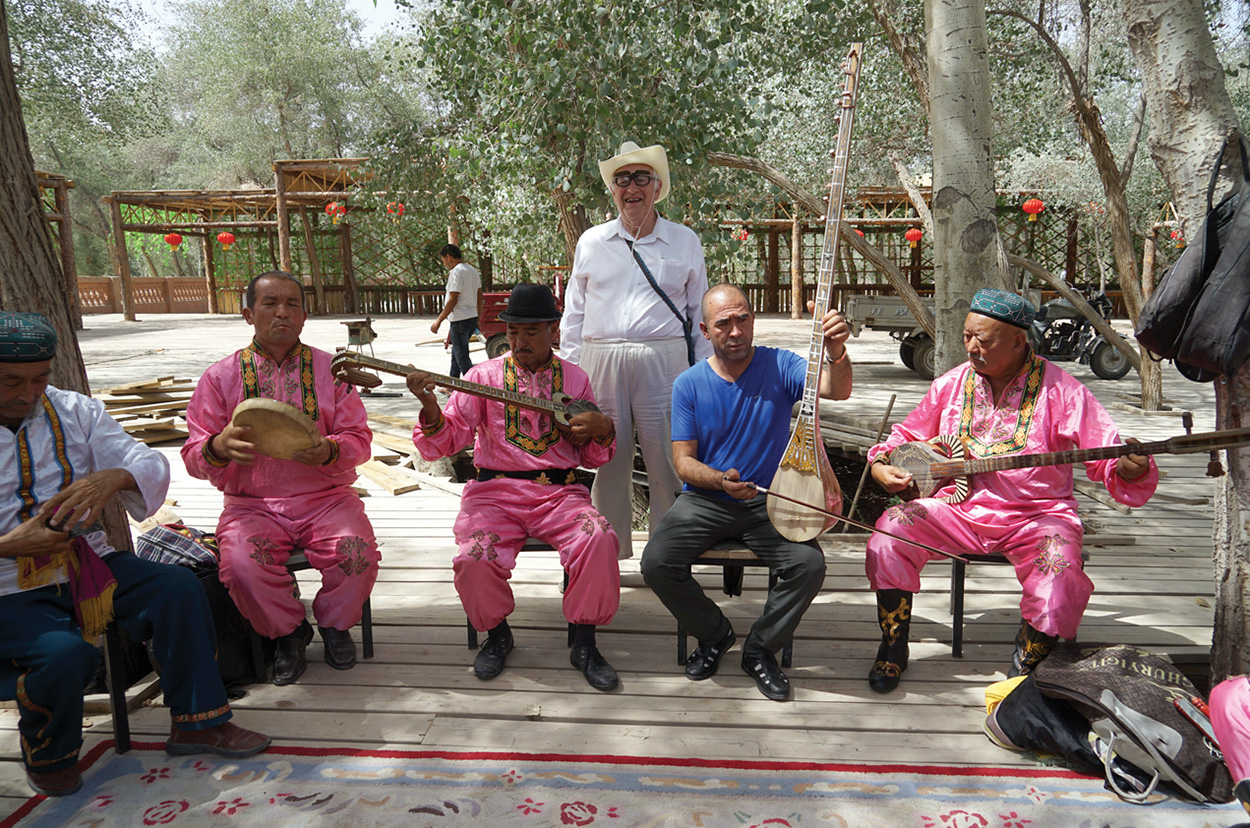Australian sinologist says Beijing only wants to be accepted as a friend

Editor’s note: As the People’s Republic of China celebrates the 75th anniversary of its founding this year, China Daily asked prominent international figures to reflect on their relationship with the country and to talk of the direction in which they see it going.
Few have done more than Colin Mackerras when it comes to building a better understanding between Australia and China. He may not be a household name in Australia but in China and among China scholars he is widely respected.
Mackerras, professor emeritus at Griffith University in Queensland, turns 85 this August and has spent 60 years teaching and writing about China.
While he looks back over his life with a great deal of pride and satisfaction, the veteran sinologist is filled with anxiety about the future of Chinese studies in Australia.
When President Xi Jinping delivered a historic address to the Australian parliament on Nov 17, 2014, Mackerras was sitting in the audience as a guest of China and not his own government.
In his speech Xi made a special reference to Mackerras, saying that the Australian scholar “has made tireless efforts to present a real China to Australia and the world based on his personal experience of China’s development and progress”.
“With his unremitting efforts and devotion, Mackerras has built a bridge of mutual understanding and amity between our people,” Xi said.
Ten years on from when Xi gave his speech, the relationship between Canberra and Beijing has been rocky.
“It’s sad,” Mackerras said.
“I think politically China is viewed with suspicion. China studies are being run down and China study grants are drying up.
“All this has implications for the future. Students no longer see studying China as being helpful in getting a job.

Australians should know that “China is not the enemy”, Mackerras said. “All China wants is to be accepted as a friend.”
A report released in March last year by the Australian Academy of Humanities stated that Chinese studies in Australia have virtually collapsed.
In a letter on May 10 this year to the Australian Research Council (ARC) signed by 60 academics from 22 universities in Australia, the scholars noted, with some concern, the decline in funding for China-related projects and studies.
They noted that Australia once produced “outstanding China scholarship that gained global recognition”. Today that is no longer the case.
The academics pointed out that “China and its social, economic, technological, and political development are too important for Australia’s future to be allowed to inadvertently disappear from the ARC’s research agenda.”
David Goodman, director of the China Studies Centre and professor of Chinese politics at the University of Sydney, said there was a time when Australia managed to keep pace with other countries in terms of the number of China specialists and students learning about China.
“What has happened in the last 15 years or so is that advantage has been allowed to run down. When people retire, they are not replaced,” he told China Daily.
Goodman noted that Mackerras had been at the forefront of creating the “China studies we used to have” in Australia.
“Before Colin went to Griffith University, courses on China were mainly in the classics. What Colin did was to say China is a serious country and part of our (Australia’s) future. So, anything on China had to combine language with such things as culture and social sciences … it set the foundation for Chinese studies in Australia throughout the 1970s, 80s, 90s, and into the 2000s,” he said.
A better understanding between Australia and China, Mackerras said, is not just about politics and economics.
“It’s about understanding China’s people, society, and culture,” he told China Daily in an interview.

Mackerras studied the Tang Dynasty (618-907) for his MLitt degree at the University of Cambridge, England, in 1964 and completed his PhD on Chinese opera at the Australian National University (ANU) in Canberra six years later.
“I was probably the first person ever to gain a doctorate in Chinese opera from an Australian university,” he said, noting that his thesis looked more at the social impact it created on society rather than the music.
His love of China has allowed him to see, firsthand the enormous changes that have taken place in China in the last 60 years.
Well before Australia officially recognized the People’s Republic of China in 1972, Mackerras was in Beijing with his young wife teaching English at what was then called the Beijing Foreign Languages Institute.
“It was just after I received my degree from Cambridge in 1964,” he recalled.
“I must admit for the first few months I did not warm to the place. Foreigners were viewed with some suspicion. But after a while, we managed to make friends and I grew to love the country and its people.”
The move to China, Mackerras said, changed his life.
“Once you got to know people, talking to them and hearing their point of view you got a very different perspective on China.”
“There is no substitute for living in a country to understand its culture. How people think, live, their lifestyle, and what matters to them.”
As a teacher, Mackerras has used his knowledge of China (he has visited the country on and off more than 70 times) since his early days of teaching English in Beijing.
Anne E. McLaren, professor of Chinese Studies at the University of Melbourne, recalled a lecture she attended while an ANU student in the 1970s.

In an article published on the current affairs website Pearls and Irritations on May 15, she wrote: “Colin brought to the classroom his vast enthusiasm and his experience of living and working in China.
“He was particularly noted for his ability to sing an aria from a Chinese opera.”
In six decades Mackerras has not lost his affection for China or its people. Many of his students are today’s leaders, academics, and businessmen and women.
Mackerras said that he once held out great hope for the Australia-China relationship.
“There was a time, up until the 1990s, when Australia and China had formed a very strong bond,” he said.
“When former prime minister Gough Whitlam formally recognized the People’s Republic of China back in 1972 it gave me great hope about the future relationship.
“I saw a surge in young Australians wanting to study China and the exchange of students between Australian and Chinese universities.
“Funding didn’t seem to be a problem as all Australian governments, irrespective of their political persuasion, wanted to build up a knowledge base as China started opening to the outside world.
“Sadly, I can’t say the same today. There is a mindset down here (Australia) which sees China with great suspicion.”
Mackerras said “it is a question my Chinese friends often ask. Why?”
“I think a lot of it comes from the fact (that) China studies have been allowed to deteriorate over the years which is a great pity.”
“Ironically, there are more Australian study centers in China today than ever before … and they are growing.
“Here in Australia the opposite is happening … it doesn’t make sense.”
As to the future, Mackerras says he is worried, especially with the way the United States is treating China.
“It’s not sensible for the United States to be provoking China. There is no point. China does not want conflict,” he said.


